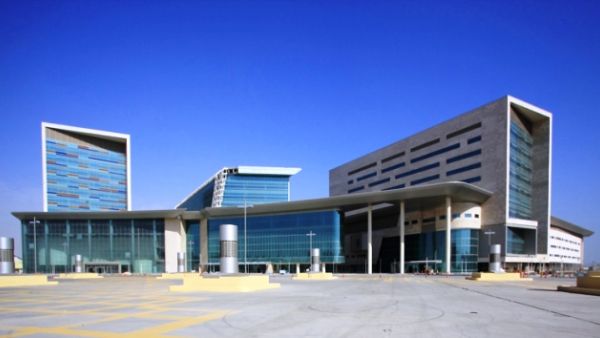HMC medical researchers win QR39.5 million QNRF grant

Medical and health sciences research at Hamad Medical Corporation (HMC) received a boost with the award of 12 grants amounting to over QR39.5 million (thirty-nine million five hundred thousand Qatari riyals) under the 4th cycle of Qatar National Research Fund’s (QNRF) National Priorities Research Program (NPRP).
“This is an excellent achievement, and a testament to the quality and potential of the HMC researchers,” said HMC Managing Director Dr Hanan Al Kuwari. “It is also an indication of the strong support the Medical Research Center and all those involved in research have given. We are proud that every year the total grants to HMC are increasing, and I am confident we will keep that positive trend up.”
“This achievement reflects the commitment, professionalism and capacity of our researchers,” said Dr Al Hareth Al Khater, Chairman of HMC’s Medical Research Center (MRC), which is the governing body for medical research at the organization. “We have quite a spectrum of grants for research in internal medicine, including studies in diabetes – particularly in regard to preventing its complications; kidney disease related to diabetes, which looks at novel therapies; and metabolic defects in subjects at increased risk of type 2 diabetes. We have many proposals touching on diabetes which is one of the national priorities, as we are seeing an epidemic of this disease particularly in the Gulf region, due to changes in lifestyle.”
Other studies that received grants looked at the genetics of the blood disorder alpha-thalassemia among the Qatari population; the genetic basis of autosomal recessive disorders in Qatar; attention deficit hyperactivity disorder (ADHD) among Qatari students; genetic factors that predispose patients to have stroke; and an intriguing, novel study on sensors for advanced wound care, wounds being a complication in many chronic disorders including diabetes and vascular disease.
Approved proposals for the present cycle also included a study coming from Al Amal Hospital which looks at myeloproliferative neoplasms or blood cancers, and precursors to this disease. Another study looks at lung health among Qatari schoolchildren, which is the second phase of an initial study that was started two years ago.
“We had about 50 proposals and our acceptance rate was about 24 percent, which was the average for the majority of institutions in Qatar. The acceptance rate compares favorably with educational institutions, and is quite a success for us. This means that our researchers at HMC, which is a service-oriented institution, are competing well with our colleagues from different educational institutions,” Dr Al Khater explained. “We are happy that while our researchers are engaged in providing clinical services as well as education to our patients, staff and the general public, they are also incorporating the third pillar of HMC into their work.”
The MRC has been receiving an increasing number of proposals and has obtained eight QNRF grants in 2010. “We are very positive that this will continue because of the commitment at the highest level of HMC and from its different departments towards supporting the organization’s research agenda,” said Dr Al Khater, who also praised the researchers for their hard work.
Speaking on future plans for the MRC, Dr Al Khater said that the department is further increasing its research capacity and is actively recruiting manpower for that purpose. “We are also working with senior management in establishing HMC as an academic health system, in collaboration with our national partners including Weill Cornell Medical College-Qatar, Primary Health Care, Sidra Medical and Research Center, College of the North Atlantic-Qatar, University of Calgary-Qatar and Qatar University.”
Dr Al Khater added that the MRC is also in the process of developing a translational research institute – a designated research facility that would bridge the gap between clinical research and bench research. “This will facilitate the transfer of new findings from basic research into products or treatments that can be used to benefit patients. It will also facilitate collaboration between clinicians and basic researchers towards discovering novel biomarkers that will promote faster diagnosis and more effective management of diseases.”
Background Information
Hamad Medical Corporation
Hamad Medical Corporation (HMC) is the main provider of secondary and tertiary healthcare in Qatar and one of the leading hospital providers in the Middle East.
For more than four decades, HMC has been dedicated to delivering the safest, most effective and compassionate care to all its patients.







